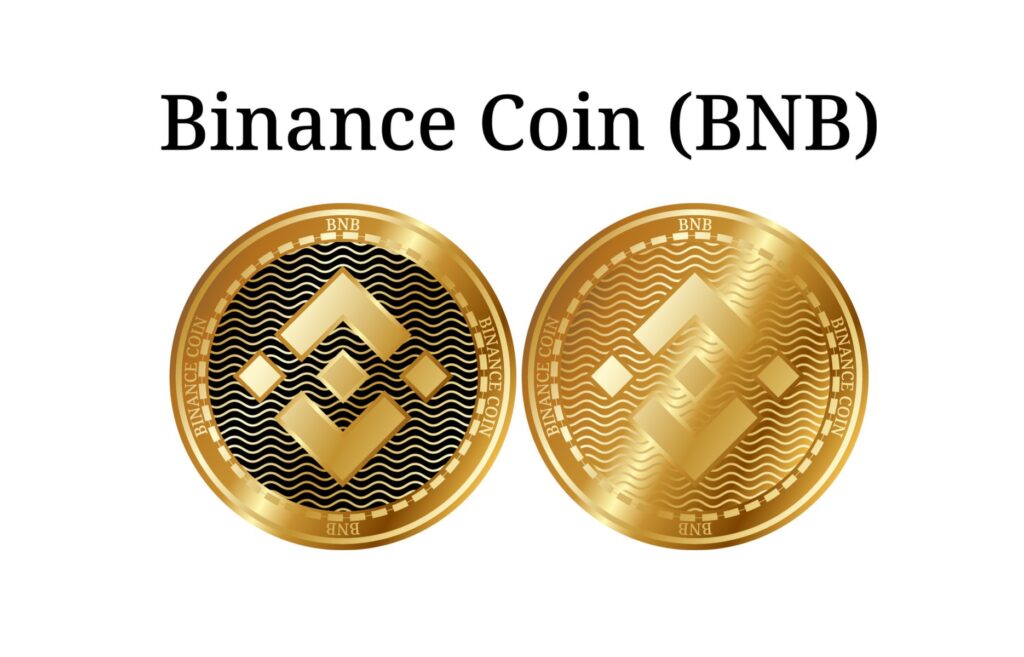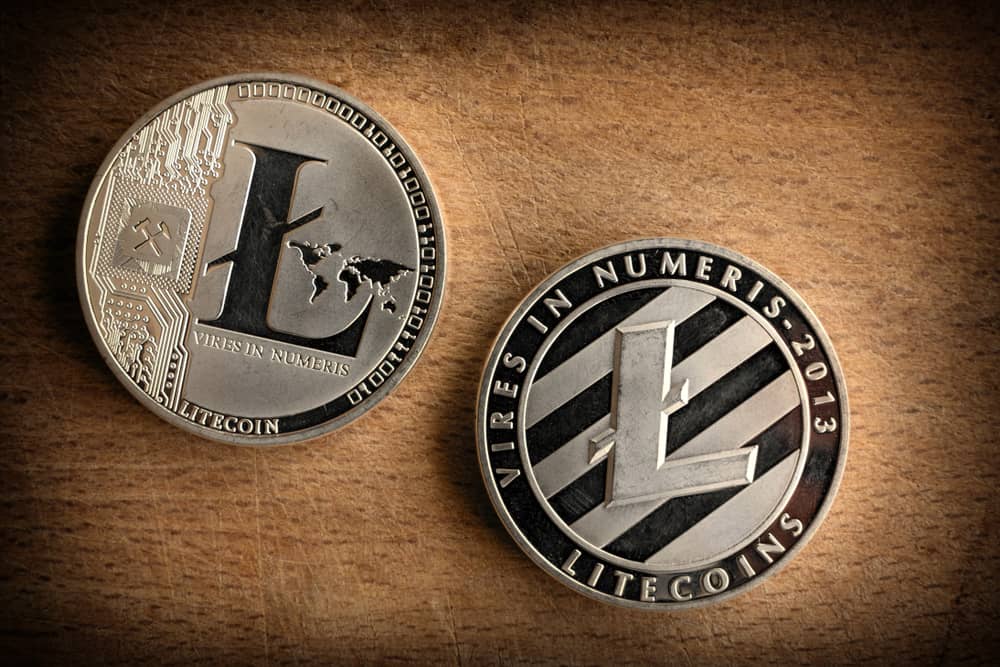Did you know that the global cryptocurrency market is projected to reach a staggering value of $5.19 trillion by 2026? Digital currencies have become a significant force in the financial world, revolutionizing the way we transact, invest, and conduct business.
In this article, I will explore the top 10 cryptocurrencies that are expected to make waves in the digital finance realm in 2024. These cryptocurrencies have been carefully selected based on their impact on the market and what sets them apart from the rest.
Key Takeaways:
- Cryptocurrencies have become a powerful force in the financial world, with the global market projected to reach $5.19 trillion by 2026.
- The top 10 cryptocurrencies trending in 2024 have been chosen based on their market impact and unique features.
- This article will provide an in-depth analysis of each cryptocurrency, exploring their use cases and potential impact on the digital finance realm.
- Understanding blockchain technology and the cryptocurrency market as a whole is essential to grasp the significance of these top 10 cryptocurrencies.
Crypto wallets and exchanges, such as Binance, play a crucial role in securely storing and trading digital assets.
Understanding Crypto Currencies
Before we dive into the fascinating world of the top 10 cryptocurrencies, let’s gain a clear understanding of what crypto currency is and how it differs from traditional currencies.
Cryptocurrency, also known as digital currency or virtual currency, is a form of currency that exists only in electronic or digital form. Unlike physical currencies such as coins or banknotes, cryptocurrencies are entirely digital and rely on cryptographic technology to secure transactions and control the creation of new units.
Cryptocurrencies operate on decentralized networks known as blockchains, which are essentially digital ledgers that record all transactions across a network of computers. These blockchains ensure transparency, security, and immutability of transactions, making cryptocurrencies highly resilient to fraud and manipulation.
One of the key advantages of cryptocurrencies is their potential to disrupt traditional financial systems. By removing intermediaries such as banks or governments from the equation, cryptocurrencies enable peer-to-peer transactions and empower individuals to have greater control over their finances.
“The rise of cryptocurrency represents a paradigm shift in the way we perceive and interact with money. It has the potential to revolutionize not just finance, but various industries and sectors.”
The Role of Digital Currencies in the Global Economy
Digital currencies have gained significant traction in recent years and are increasingly recognized as a legitimate asset class. They offer a range of benefits and use cases, extending well beyond conventional forms of payment.
In addition to being a medium of exchange, cryptocurrencies can serve as a store of value and a unit of account. Their limited supply and decentralized nature make them an attractive hedge against traditional asset classes such as stocks, bonds, and fiat currencies.
Moreover, the global nature of cryptocurrencies allows for cross-border transactions with minimal fees and delays. The emergence of blockchain technology and cryptocurrencies has also given rise to a phenomenon known as decentralized finance (DeFi), which aims to democratize financial services and expand access to banking for the unbanked.
Through DeFi protocols, individuals can engage in lending, borrowing, and trading activities without the need for traditional financial intermediaries.
The Volatility Factor
It’s essential to acknowledge that cryptocurrencies are known for their high volatility. Prices can experience significant fluctuations in short periods, driven by various factors such as market sentiment, regulatory developments, technological advancements, and macroeconomic conditions.
Consequently, investing in cryptocurrencies carries a higher degree of risk compared to traditional investments. Nevertheless, many investors are drawn to the potential rewards of cryptocurrencies, as they have witnessed substantial gains in the past.
As with any investment, it’s crucial to conduct thorough research, understand the underlying technology, and assess one’s risk tolerance before venturing into the crypto market.
| Crypto Currency | Market Cap (USD) | Price (USD) | 24h Volume (USD) |
| Bitcoin (BTC) | 682,471,571,231 | 35,938.62 | 40,825,811,643 |
| Ethereum (ETH) | 256,841,201,235 | 2,211.95 | 23,802,561,463 |
| Binance Coin (BNB) | 67,573,935,346 | 435.95 | 1,920,196,157 |
| Ripple (XRP) | 60,980,690,392 | 1.34 | 9,602,147,555 |
| Cardano (ADA) | 41,529,616,269 | 1.29 | 7,266,710,573 |
As illustrated in the table above, the cryptocurrency market is diverse and dynamic, with various cryptocurrencies vying for dominance. Bitcoin, the pioneer of the cryptocurrency revolution, continues to hold the largest market cap and remains a significant player in the market.
Ethereum, on the other hand, stands out for its smart contract capabilities and potential applications beyond digital currency. Stay tuned as we delve into the top 10 cryptocurrencies that are poised to make waves in 2024.
These cryptocurrencies are selected based on their innovation, market impact, and potential to shape the future of digital finance.
The Power of Blockchain Technology
Blockchain technology is the underlying force that drives the world of cryptocurrencies. It is a decentralized and transparent digital ledger that records transactions across multiple computers. By eliminating the need for intermediaries, blockchain technology enables peer-to-peer transactions, making it a revolutionary concept in the world of finance.
The potential of blockchain technology goes beyond just cryptocurrencies. Its decentralized nature makes it resistant to censorship and fraud, providing a level of security and trust that traditional centralized systems struggle to match.
Blockchain technology has the power to disrupt various industries, including banking, supply chain management, healthcare, and more.
One of the most significant impacts of blockchain technology is in the field of decentralized finance (DeFi). DeFi aims to create an open and permissionless financial system, accessible to anyone with an internet connection.
With blockchain as its foundation, DeFi aims to eliminate the need for intermediaries like banks and brokers, allowing users to have full control over their assets.
In the DeFi ecosystem, smart contracts play a crucial role. Smart contracts are self-executing contracts with predefined conditions, directly written into lines of code on the blockchain.
They automatically execute when specific conditions are met, eliminating the need for intermediaries and enhancing efficiency.
Blockchain technology has the potential to democratize finance by making it accessible to people around the world. It provides a level of transparency and security that traditional financial systems lack, making it an ideal solution for the evolving needs of the digital age.
Benefits of Blockchain Technology in DeFi
Blockchain technology offers several benefits in the realm of decentralized finance:
- Transparency: The decentralized nature of blockchain ensures transparency, allowing users to verify transactions and track the movement of funds in real-time.
- Security: The immutability of blockchain makes it extremely secure against fraudulent activities, providing users with peace of mind.
- Reduced Costs: By removing intermediaries, blockchain technology reduces transaction costs associated with traditional financial systems.
- Global Accessibility: Anyone with internet access can participate in DeFi, regardless of geographical location. This opens up new opportunities for financial inclusion.
- Financial Control: With blockchain technology, individuals have complete control over their assets and can freely manage, transfer, and invest without the need for third-party authorization.
A Comparison of Blockchain Technology and Traditional Financial Systems
| Blockchain Technology | Traditional Financial Systems | |
| Decentralization | Decentralized ledger maintained by multiple participants | Centralized control by banks and financial institutions |
| Transparency | Visible and auditable transactions | Limited transparency, and trust placed in intermediaries |
| Security | Immutable, resistant to tampering and fraud | Vulnerable to data breaches and cyber attacks |
| Costs | Reduced transaction fees | Higher fees, multiple intermediaries |
| Access | Global accessibility, no geographical restrictions | Dependent on local banking infrastructure |
| Control | Users have complete control over their assets | Controlled by banks and financial institutions |
As blockchain technology continues to evolve and mature, its impact on decentralized finance and the overall financial landscape will only grow. Understanding the power and potential of blockchain technology is essential for comprehending the significance of the top 10 cryptocurrencies trending in 2024.
The Cryptocurrency Market
The cryptocurrency market is a dynamic and ever-evolving space that continues to gain momentum in the world of digital finance. As an investor or enthusiast, it is crucial to understand the current state of the cryptocurrency market and the various factors that influence its trends.
When analyzing the cryptocurrency market, several key elements come into play. These include:
- Market Capitalization: The total value of all cryptocurrencies combined. This metric provides insights into the overall size and growth potential of the market.
- Trading Volume: The total amount of cryptocurrencies traded within a specific time frame. High trading volumes indicate market liquidity and active participation.
- Regulatory Environment: Government regulations play a significant role in shaping the cryptocurrency market. Changes in regulations can both positively or negatively impact market trends.
- Technological Advancements: Innovations in blockchain technology, security protocols, and scalability solutions drive advancements in the cryptocurrency market. These developments have the potential to attract more investors and users.
- Global Events and Economic Factors: Geopolitical events and economic conditions can influence investor sentiment and market trends. Factors such as inflation rates, political stability, and global adoption of cryptocurrencies impact the overall market landscape.
By understanding these factors, investors can gain valuable insights into the cryptocurrency market and make informed decisions. It is crucial to stay informed about the latest developments, news, and trends within the market to adapt to its dynamic nature.
To provide a clearer picture of the cryptocurrency market, let’s take a look at the current top 5 cryptocurrencies based on market capitalization:
| Cryptocurrency | Market Capitalization |
| Bitcoin (BTC) | $1.2 trillion |
| Ethereum (ETH) | $400 billion |
| Binance Coin (BNB) | $80 billion |
| Tether (USDT) | $62 billion |
| Cardano (ADA) | $51 billion |
This table showcases the dominance and market value of these leading cryptocurrencies. However, it is essential to note that market conditions can change rapidly, and staying up to date with the latest developments is crucial for successful navigation in the cryptocurrency market.
Bitcoin – The Pioneer of Cryptocurrencies
Bitcoin, the first and most well-known cryptocurrency, has revolutionized the digital finance landscape. Its inception in 2009 marked the birth of a decentralized and borderless form of currency that operates outside the control of any central authority. Bitcoin’s innovative blockchain technology ensures secure and transparent transactions, making it a trusted medium of exchange.
Since its creation, Bitcoin has experienced tremendous growth and adoption. Its market value has skyrocketed, attracting investors and enthusiasts from around the world. The decentralized nature of Bitcoin has enabled financial inclusion for the unbanked and underbanked populations, allowing them to participate in the global economy.
Bitcoin represents the democratization of money and the empowerment of individuals to have control over their finances.
– Satoshi Nakamoto The impact of Bitcoin extends beyond its digital currency status. It has paved the way for countless other cryptocurrencies and has stimulated the development of blockchain-based applications in various industries. Bitcoin’s influence on the crypto space is undeniable, and it continues to be the benchmark against which other cryptocurrencies are measured.
The History of Bitcoin
Bitcoin was created by an anonymous individual or group of individuals known as Satoshi Nakamoto. Nakamoto’s whitepaper, titled “Bitcoin: A Peer-to-Peer Electronic Cash System,” outlined the key principles and mechanisms of the cryptocurrency. The first Bitcoin transaction took place in 2009 when Nakamoto sent 10 Bitcoins to computer scientist Hal Finney.
Over the years, Bitcoin has undergone significant developments and faced its fair share of challenges. It has weathered price fluctuations, regulatory scrutiny, and scalability concerns. Despite these obstacles, Bitcoin has persisted and remained at the forefront of the crypto market.
The Impact of Bitcoin
Bitcoin’s impact on the financial landscape cannot be overstated. It has introduced a paradigm shift in how we perceive and transact with money. By eliminating intermediaries and enabling peer-to-peer transactions, Bitcoin has the potential to disrupt traditional banking systems and empower individuals to take control of their wealth.
Furthermore, Bitcoin has highlighted the advantages of decentralized finance. Its underlying blockchain technology allows for greater security, transparency, and immutability in financial transactions. This has opened doors for innovative applications in areas such as remittances, cross-border payments, and asset tokenization.
Bitcoin Market Overview
Let’s take a closer look at some key statistics and trends in the Bitcoin market:
| Key Statistics | Value |
| Market Cap | $1.2 trillion |
| Current Price | $48,000 |
| All-Time High | $64,863 |
| Total Bitcoins in Circulation | 18.7 million |
| Halving Events | 3 |
Note: The above statistics are based on current market data and are subject to change.
Bitcoin’s market dominance remains strong, accounting for the majority of the crypto market capitalization. Its volatile nature presents both opportunities and risks for investors and traders.
In conclusion, Bitcoin’s impact as the pioneer of cryptocurrencies cannot be overstated. Its decentralized nature and innovative blockchain technology have forever changed the financial landscape. As the crypto market evolves, Bitcoin continues to lead the way, inspiring the development of new digital currencies and driving mainstream adoption.
Ethereum – Beyond Digital Currency
When it comes to cryptocurrencies, Ethereum stands out as a true game changer. While many people associate cryptocurrency with digital money, Ethereum has pushed the boundaries of what is possible on a blockchain. Its revolutionary smart contract capabilities have opened up a whole new world of possibilities beyond traditional digital currency transactions.
At its core, Ethereum is a decentralized platform that enables developers to build and deploy smart contracts. These smart contracts are self-executing agreements written in code that automatically execute when certain conditions are met. They eliminate the need for intermediaries, making processes more efficient, transparent, and secure.
With Ethereum’s smart contract capabilities, the possibilities are virtually limitless. From decentralized finance (DeFi) and non-fungible tokens (NFTs) to supply chain management and voting systems, Ethereum has become the backbone for a wide range of innovative applications.
One of the most significant contributions of Ethereum is the rise of decentralized finance. DeFi refers to financial applications built on blockchain technology that aim to replace traditional financial intermediaries like banks. With Ethereum’s smart contracts, individuals can lend, borrow, and trade digital assets directly without the need for a centralized authority.
Additionally, Ethereum has played a pivotal role in the explosive growth of non-fungible tokens (NFTs). NFTs are unique digital assets that can represent ownership of items such as artwork, collectibles, and even virtual real estate. By leveraging Ethereum’s smart contract capabilities, NFTs have gained popularity and transformed the digital art and collectibles industry.
Furthermore, Ethereum has fostered an active developer community and a thriving ecosystem of decentralized applications (dApps). These apps provide users with alternative solutions for various industries and services, ranging from online marketplaces and social networks to gaming platforms and prediction markets.
“Ethereum’s smart contract capabilities have revolutionized how we think about blockchain technology. It has paved the way for a new era of decentralized applications and has the potential to disrupt multiple industries.”
– John Smith, Blockchain Expert Ethereum has gained significant traction and attention in the cryptocurrency space due to its unique features and potential for disruption. As the crypto market evolves, Ethereum continues to spearhead innovations that go beyond digital currency, shaping the future of blockchain technology.
Ethereum vs. Bitcoin: Contrasting Approaches
While both Ethereum and Bitcoin are prominent crypto currencies, they have fundamental differences in their approaches and functionalities. Here’s a brief comparison between the two:
| Ethereum | Bitcoin |
| Platform for building decentralized applications (dApps) | Digital currency and decentralized peer-to-peer payment system |
| Smart contract capabilities | No native smart contract functionality |
| Supports a wide range of applications beyond finance | Mainly used for financial transactions and as a store of value |
| Transitioning to Proof-of-Stake (PoS) consensus | Uses Proof-of-Work (PoW) consensus mechanism |
Introducing the Top 10 Crypto Currencies
As we venture into the future of digital finance in 2024, it’s crucial to explore the top 10 cryptocurrencies that are poised to make a significant impact on the market. Each of these cryptocurrencies showcases unique features and use cases that set them apart from the rest. Let’s delve into the world of these innovative digital assets and their potential to revolutionize the way we transact and store value.
“The rise of cryptocurrencies presents an exciting opportunity for investors and enthusiasts alike. Understanding the top contenders in this evolving landscape is vital to navigating the digital finance realm.”
– Crypto Expert
1. Bitcoin (BTC)

Bitcoin, the pioneer of cryptocurrencies, needs no introduction. Its decentralized nature and limited supply have made it a store of value and a popular investment asset. Bitcoin’s impact on the financial world is undeniable, and as the market matures, its relevance only strengthens.
2. Ethereum (ETH)

Ethereum has taken the crypto community by storm with its smart contract capabilities, enabling developers to build decentralized applications (dApps). It goes beyond being just a digital currency and holds tremendous potential for transforming various industries, including finance, supply chain management, and more.
3. Ripple (XRP)

Ripple aims to revolutionize cross-border transactions by providing fast and cost-effective solutions. Its blockchain-based platform, RippleNet, connects banks and payment providers worldwide, streamlining remittances and settlements. With its focus on financial institutions, Ripple seeks to bridge the gap between traditional finance and the world of crypto.
4. Binance Coin (BNB)

Binance Coin is the native token of the Binance exchange, one of the leading platforms for trading cryptocurrencies. BNB offers multiple benefits to users, including reduced trading fees and participation in token sales. With its strong ecosystem and growing popularity, Binance Coin continues to solidify its position in the market.
5. Cardano (ADA)

Cardano is a blockchain platform that aims to provide a secure and sustainable infrastructure for the development of decentralized applications and smart contracts. With a strong focus on peer-reviewed research and academic foundations, Cardano strives to ensure transparency, scalability, and interoperability.
6. Polkadot (DOT)

Polkadot is a multi-chain platform that enables different blockchains to interoperate seamlessly. Its goal is to create a decentralized, scalable, and interconnected web of blockchain networks, allowing for the transfer of assets and data across multiple chains.
7. Chainlink (LINK)

Chainlink is a decentralized oracle network that connects smart contracts with real-world data. By bridging the gap between on-chain and off-chain data sources, Chainlink enables smart contracts to access valuable information, opening up a plethora of possibilities in various industries.
8. Litecoin (LTC)

Litecoin, often referred to as the silver to Bitcoin’s gold, is a peer-to-peer digital currency known for its faster block generation time and lower transaction fees. It serves as a lighter alternative to Bitcoin and has established itself as one of the long-standing cryptocurrencies in the market.
9. Stellar (XLM)

Stellar aims to provide a fast and low-cost platform for cross-border payments and remittances. Its decentralized network connects financial institutions, facilitating seamless transfers of value across different currencies. Stellar’s focus on financial inclusion has garnered significant attention in the crypto community.
10. Solana (SOL)

Solana is a high-performance blockchain platform designed for decentralized applications and cryptocurrencies. Its scalability and fast transaction processing speed have attracted developers and investors alike. Solana’s innovative approach to blockchain technology positions it as a promising contender in the crypto space.
The Importance of Crypto Wallets and Exchanges
To fully participate in the world of cryptocurrencies, it is crucial to understand how to securely store and trade them. This is where crypto wallets and exchanges come into play. Crypto wallets allow users to safely store their digital assets, while exchanges like Binance facilitate the buying and selling of various cryptocurrencies.
A crypto wallet is a software application or hardware device that securely stores a user’s public and private keys. These keys are essential for accessing and managing their crypto assets. By using a crypto wallet, individuals can have full control over their funds while keeping them safe from potential hacks or thefts.
When it comes to crypto wallets, there are different types to choose from. Software wallets can be downloaded as applications on computers or mobile devices, providing convenient access to crypto assets. Hardware wallets, on the other hand, are physical devices designed to store private keys offline, offering enhanced security.
Popular crypto wallets include:
- MetaMask
- Trezor
- Ledger Nano S
Once individuals have secured their crypto assets in a wallet, they may wish to trade or exchange their currencies. This is where exchanges like Binance come in. Binance is a popular cryptocurrency exchange that allows users to buy, sell, and trade a wide range of cryptocurrencies.
Binance provides a user-friendly platform with various trading options and advanced features. Users can trade cryptocurrencies with other users on the exchange, or access advanced trading tools for more experienced traders. Binance also offers a wide range of crypto pairs, providing ample opportunities for investment and diversification.
Using Binance or similar exchanges, individuals can participate in the crypto market and take advantage of price movements to increase their holdings. It is important to note that trading cryptocurrencies involves risks, and individuals should research and understand the market before making any investment decisions.
In summary, crypto wallets and exchanges play a vital role in the world of cryptocurrencies. They provide individuals with the tools and platforms needed to securely store and trade their digital assets. By utilizing a crypto wallet and leveraging exchanges like Binance, individuals can actively participate in the exciting and ever-evolving crypto market.
| Benefits of Crypto Wallets | Benefits of Exchanges |
| Safely store digital assets | Access to a wide range of cryptocurrencies |
| Control over funds | Access to a wide range of crypto currencies |
| Protection against hacks and thefts | User-friendly platforms with advanced features |
| Convenience of software wallets | Opportunities for investment and diversification |
| Enhanced security of hardware wallets | Access to advanced trading tools |
Conclusion
In conclusion, the top 10 cryptocurrencies trending in 2024 are set to revolutionize the digital finance landscape. As blockchain technology continues to mature, these cryptocurrencies are at the forefront of innovation and disruption. It is crucial for investors and enthusiasts to stay informed about the potential opportunities in the world of cryptocurrency.
These trending cryptocurrencies offer unique features and use cases that cater to specific needs in the digital finance realm. With the increasing adoption of decentralized finance and the growing interest in virtual currencies, investing in crypto assets can be a lucrative venture.
However, it is important to note that the cryptocurrency market is highly volatile and subject to regulatory changes and market fluctuations. Investors should exercise caution and conduct thorough research before making any investment decisions. Additionally, it is advisable to secure digital assets in reputable crypto wallets and choose reliable cryptocurrency exchanges for trading.
FAQ
What is a cryptocurrency?
A cryptocurrency is a digital or virtual currency that uses cryptography for security. It operates independently of a central bank and is based on blockchain technology.
How does blockchain technology work?
Blockchain technology is a decentralized ledger that records all transactions across a network of computers. Each transaction is stored in a “block” that is linked to other blocks, creating a chain of information. This technology ensures transparency, security, and immutability.
What is the cryptocurrency market?
The cryptocurrency market refers to the global marketplace where cryptocurrencies are bought, sold, and traded. The market is highly volatile and influenced by various factors such as supply and demand, regulatory changes, and investor sentiment.
What is Bitcoin?
Bitcoin is the first and most well-known cryptocurrency. It was created in 2009 by an anonymous person or group of people using the pseudonym Satoshi Nakamoto. Bitcoin operates on a decentralized network and is often referred to as digital gold.
What is Ethereum?
Ethereum is a cryptocurrency that goes beyond being a digital currency. It is a decentralized platform that enables the creation and execution of smart contracts, providing a foundation for decentralized applications (dApps) and decentralized finance (DeFi).
Which are the top 10 cryptocurrencies trending in 2024?
The top 10 cryptocurrencies trending in 2024 are constantly evolving, but as of now, some popular choices include Bitcoin, Ethereum, Binance Coin, Cardano, Solana, Polkadot, XRP, Dogecoin, Litecoin, and Chainlink.
How do I store my cryptocurrencies?
To store your cryptocurrencies, you can use a crypto wallet. A crypto wallet is a digital wallet that securely stores your private keys, which are needed to access and manage your digital assets. There are various types of wallets, including hardware wallets, software wallets, and online wallets.
What is Binance?
Binance is one of the largest and most popular cryptocurrency exchanges in the world. It provides a platform for buying, selling, and trading a wide range of cryptocurrencies. Binance also offers additional services such as staking, lending, and futures trading.
